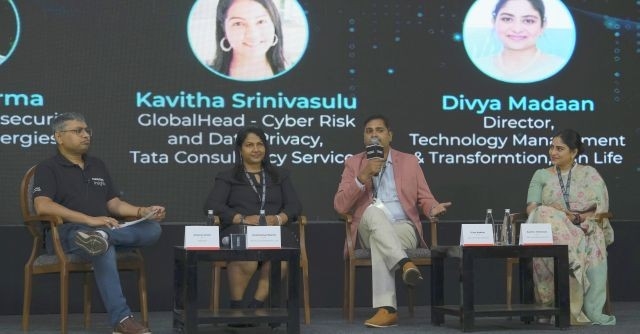
How can companies enable AI-led Digital Transformation and Innovation in India


India's business environment is experiencing substantial transformations due to the integration of artificial intelligence (AI), which is driving innovation, improving efficiency, and increasing competitiveness. This rapid development positions India as a growing market for AI solutions, though challenges remain in its AI progression.
During a panel discussion on AI-led digital transformation in India’s tech ecosystem, hosted by TechCircle at the Tech Outcomes Event 2024 in Mahabalipuram, Tamil Nadu, Achyuta Ghosh, Senior Director and Head of Insights at Nasscom, emphasized the growing adoption of AI across sectors. He noted that organisations are increasingly using AI to reduce costs, improve operational efficiency, enhance customer experience, and drive revenue growth, and sought panellists' views on AI adoption.
Kavitha Srinivasulu, Global Head of Cyber Risk and Data Privacy at Tata Consultancy Services (TCS), highlighted that while AI offers opportunities such as automating routine tasks, improving productivity, and enhancing cybersecurity through threat detection and data analysis, it cannot replace human judgment.

She cited challenges in the healthcare sector, including data quality issues, regulatory hurdles, and a general lack of understanding of the technology. To address these, she recommended robust data collection, transparent algorithms, continuous monitoring, extensive stakeholder engagement, and educational initiatives for responsible AI integration in healthcare.
Divya Madaan, Director of Technology Management and Transformation at Sun Life Global Solutions, discussed the significant growth of Global Capability Centers (GCCs) in India over the past five years, positioning the country for future expansion. She attributed this growth to a focus on skills development, cybersecurity, and progressive policies.
Madaan noted that the insurance sector is adopting advanced technologies like mobile apps with facial recognition for secure identification and claims submission, as well as biometric voice recognition combined with natural language processing (NLP) to enhance customer interactions and streamline claims processing.

Vinod Sharma, Head of IT and Cybersecurity at Hero Future Energies pointed out that for India to become AI-enabled and tech-resilient, it must overcome several challenges. The country faces a shortage of skilled labour, and struggles with inadequate digital infrastructure, especially in rural areas with unreliable internet services.
Additionally, the rising demand for data centres to support data-driven decision-making in sectors like finance, healthcare, and e-commerce requires significant investment in technology, skilled labour, and energy resources, he said.
Ghosh concluded that India's challenges — skilled labour shortages, inadequate digital infrastructure, and the need for more data centres — are interconnected and must be addressed holistically. He emphasized that by investing in cybersecurity, training programs, enhancing connectivity, and building necessary digital infrastructure, India can better position itself to leverage AI and other emerging technologies for sustainable growth and development in the future.

